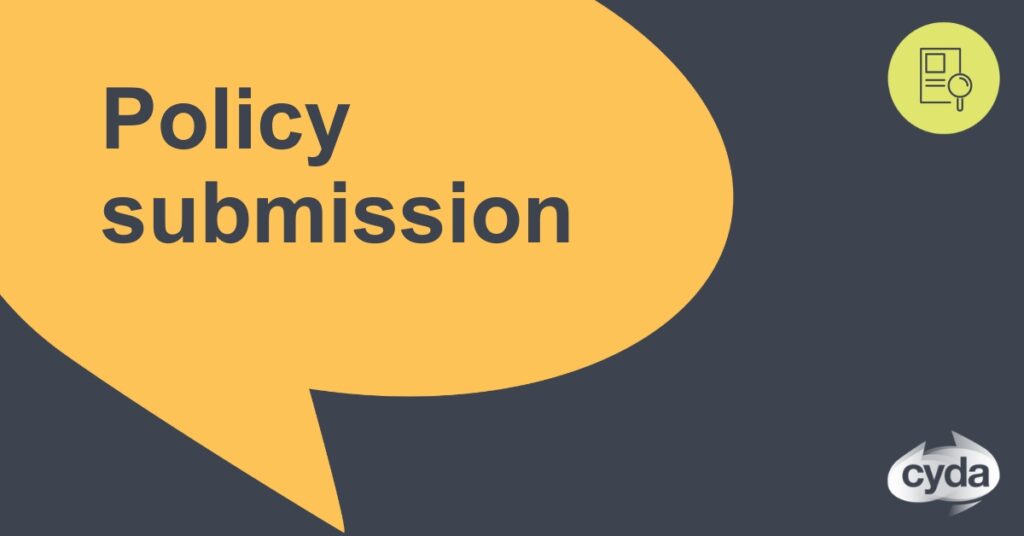In mid-March 2020, when the extent of the coronavirus pandemic was becoming clear, Children and Young People with Disability Australia (CYDA) identified that Australia lacked a coherent national information strategy and response for children and young people with disability. While swift responses were formulated in relation to some ‘vulnerable’ groups, for example people living in aged care facilities, there was a clear gap in relation to children and young people with disability and their families.
You can download our full submission using the buttons above.







